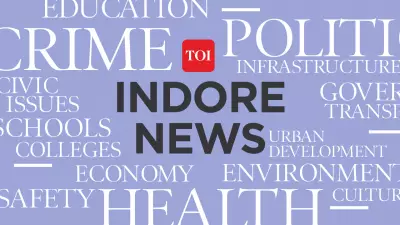
In a landmark decision that has ignited intense debate about academic freedom, the Texas A&M University System has implemented a groundbreaking policy requiring professors to obtain presidential approval before discussing specific race and gender topics in their classrooms.
New Policy Mandates Presidential Approval
The Texas A&M University System regents formally approved the controversial policy on Thursday, marking a significant shift in classroom autonomy across all 12 institutions within the system. According to the new regulations, no academic course will be permitted to advocate for race or gender ideology, or topics concerning sexual orientation or gender identity without explicit authorization from the campus president.
University officials maintain that the policy's objective is not to monitor individual speech but to ensure transparency and oversight in co-curricular content. However, this represents the first instance of a Texas public university system formally restricting faculty discussions on these sensitive subjects.
Academic Freedom Under Scrutiny
The decision arrives months after a viral video captured a student confronting an instructor over classroom lessons at the flagship campus, creating widespread controversy. Critics argue that such measures could severely impede teaching effectiveness, undermine academic freedom, and potentially violate First Amendment protections.
Rana Jaleel, chair of the American Association of University Professors' committee on academic freedom, expressed deep concern, stating that the policy fundamentally challenges the essence of education by threatening the free exchange of knowledge without fear of censorship or reprisal.
Background and National Context
This development occurs against a broader national discourse concerning diversity, equity, and inclusion in higher education. Universities including Harvard and Columbia have faced similar scrutiny from conservative critics, while the Trump administration previously pressured institutions to reconsider admissions policies and campus programming.
Last month, former President Trump specifically requested nine major universities, including the University of Texas at Austin, to eliminate race and sex considerations from admissions processes while promoting conservative viewpoints.
The Texas A&M policy specifically defines race ideology as concepts that assign intrinsic guilt based on presumed ancestral actions or that shame a particular race or ethnicity. Similarly, gender ideology is characterized as self-assessed gender identity disconnected from biological sex.
Precedent and Consequences
The policy approval follows the September dismissal of Melissa McCoul, a senior lecturer in the English department, after a video surfaced showing her debating a student about gender identity in a children's literature class. McCoul's termination, which occurred following political pressure from Republican lawmakers including Governor Greg Abbott, ultimately led to the resignation of Texas A&M's then-president, Mark A. Welsh III.
Leonard Bright, president of the Texas A&M chapter of the American Association of University Professors, suggested that McCoul's case likely paved the way for the new policy. He cautioned that requiring political or administrative approval for classroom content risks compromising the fundamental pursuit of truth in education.
Divided Reactions and Future Implications
During Thursday's regents meeting, eight professors voiced opposition to the policy, urging reconsideration and advocating for McCoul's reinstatement. Conversely, two faculty members expressed support, arguing that academic freedom doesn't entitle instructors to teach material without appropriate oversight.
Regent Sam Torn defended the measure as a necessary safeguard to ensure the university focuses on education rather than advocacy. While the policy mirrors recent K-12 restrictions in Texas regarding sexual orientation and gender identity, it uniquely applies to higher education institutions that previously enjoyed broader latitude in determining course content.
As universities nationwide face increasing scrutiny over campus programming and admissions, Texas A&M's decisive move raises critical questions about balancing institutional oversight, political pressures, and the fundamental principles of academic inquiry. For both students and faculty, this policy represents a turning point where navigating discussions about race, gender, and identity in classrooms now requires formal administrative approval, potentially altering academic discourse at one of America's largest public university systems.





